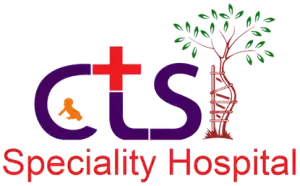Defibrillators are innovative devices that play a pivotal role in heart failure management. These medical tools continuously monitor heart rhythms and intervene instantly by delivering electrical shocks to restore a normal heartbeat when necessary. For individuals living with heart conditions, a defibrillator isn’t just a safety measure—it’s a life-saving ally. At CTS Hospitals, we integrate cutting-edge technology with compassionate care to ensure the best outcomes for our patients.

What is a Defibrillator?
A defibrillator is a sophisticated device designed to manage potentially fatal heart arrhythmias by restoring the heart’s natural rhythm. Its purpose extends beyond mere intervention—it offers continuous protection for those at high risk of sudden cardiac arrest.
- External Defibrillators: Often seen in public spaces and used during emergencies to revive individuals experiencing cardiac arrest.
- Implantable Cardioverter Defibrillators (ICDs): Small devices implanted under the skin that provide round-the-clock monitoring and deliver corrective shocks when needed.
At CTS Hospitals, we emphasize patient-specific solutions, helping you choose the right defibrillator based on your condition.
Different Types of ICDs
Implantable defibrillators are further categorized based on their placement and functionality, ensuring they cater to diverse patient needs.
Traditional ICDs
- Implanted near the chest, with leads extending into the heart.
- Precisely detects and corrects irregular rhythms with electrical impulses.
- Commonly recommended for patients requiring direct heart intervention.
Subcutaneous ICDs (S-ICDs)
- Positioned under the skin but outside the chest cavity.
- Operates without leads inserted into the heart, minimizing certain risks.
- Ideal for patients prone to complications from traditional leads.
The cardiology specialists at CTS Hospitals will help you understand which option aligns best with your medical needs.
How Does an ICD Function?
An Implantable Cardioverter Defibrillator (ICD) is more than just a device—it’s a vigilant guardian for your heart. Here’s a breakdown of how it works:
- 24/7 Monitoring: Constantly observes heart rhythms for any abnormalities.
- Shock Delivery: Administers controlled electrical shocks to reset the heartbeat during arrhythmias.
- Pacing Support: Acts as a pacemaker if the heart beats too slowly.
By responding instantly to irregular rhythms, an ICD ensures uninterrupted protection against life-threatening events.
Why Might You Need an ICD?
A defibrillator can be a life-changing addition for patients with significant heart risks. Here’s why your doctor might recommend it:
- History of severe arrhythmias or cardiac episodes.
- Weakened heart muscles or reduced pumping ability.
- Family history of sudden cardiac death.
- Ineffectiveness of medications or other non-invasive treatments.
An ICD ensures that you have constant heart monitoring, reducing the risks associated with unpredictable heart issues.
When is an ICD Necessary?
At CTS Hospitals, we advocate for ICD implantation in patients with heightened risks of sudden cardiac arrest. It’s often prescribed under the following circumstances:
- Severe reduction in the heart’s ability to pump blood effectively.
- Previous heart attacks or occurrences of dangerous arrhythmias.
- A strong genetic predisposition to cardiac complications.
By incorporating advanced ICD technology, we offer a proactive approach to protecting and preserving heart health.
Are There Risks Associated with ICDs?
While ICDs are vital for many patients, it’s important to be aware of the potential challenges:
- Infection: There’s a slight risk of infection at the implantation site.
- Device Issues: Rare cases where the device might misfire or fail to deliver a shock.
- Discomfort: Mild irritation or soreness at the implant location is possible.
At CTS Hospitals, our cardiac care team closely monitors patients with ICDs, ensuring risks are minimized and the devices function optimally.
Conclusion
Defibrillators are more than medical devices—they are lifelines for individuals managing heart failure. By addressing life-threatening arrhythmias swiftly, they offer unmatched protection and peace of mind. At CTS Hospitals, we combine state-of-the-art technology with expert care to ensure every patient receives the attention and treatment they deserve. Take charge of your heart health and explore how a defibrillator can transform your quality of life.
